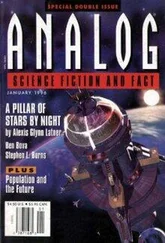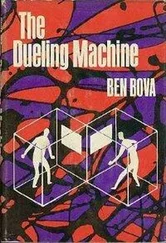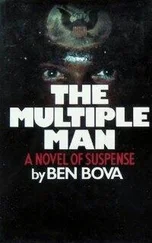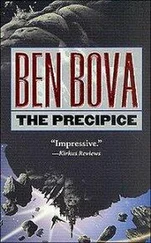So I fiddled around with the power feeds and the connections between the plasma chamber and the thin mesh grid in the middle of the platform that served for the beam’s focus. The same damned flimsy sheet of monofilament that I wanted to transmit to the other side of the lab sat on the grid just as it had for the past two weeks, like a permanent symbol of frustration.
Entanglement. All the equipment had to do was to match the quantum states of the monofilament’s atoms and transmit that information to the receiver across the lab. That’s a lot of information to juggle, but I had six oversized quantum computers lined up against the lab’s wall, more than enough qubits to handle the job. In theory.
I checked the computers; they were connected in parallel, humming nicely, awaiting the command to go to work.
Everything checked, just as it had for the past two weeks. I went to the master control on the other side of the bench. I noticed my three grad students edging toward the door. They weren’t worried about the equipment exploding; they knew from experience that I was the one who blew up when the system failed to work.
Sam was standing by the door, arms folded across his chest, a curious expression on his face: kind of crafty, devious.
“Ready,” I called out. Then, “Stand clear.”
The latter call was strictly routine. The nearest human body to the equipment was several meters away, by the door. Except for me, and I made sure I was on the other side of the apparatus from the focus grid, shielded by the bulk of the plasma chamber.
As if I needed protection. I pushed the keypad that activated the equipment. It buzzed loudly. The plasma chamber glowed for a moment, then went dark. The sheet of monofilament stayed right there on the focus grid, just as it had since the first time I tried to make the godforsaken junk-pile perform.
I took a deep breath and started counting to one hundred.
Then I heard a scuffle behind me. Turning, I saw Sam had a hammer-lock on one of my grad students; he was dragging the kid toward me.
“He had this in his pocket,” Sam said, tossing me a slim plastic oblong from his free hand. The grad student was grimacing; Sam had his arm screwed up pretty tight behind his back.
“It’s a remote of some kind,” I muttered, turning the device over in my hand.
“He clicked it on just before you pressed the start button,” Sam said.
I turned to the student, W. W. Wilson. He was the beefy kind; I was surprised Sam could hold an arm-lock on him.
“Woody,” I asked, dumbfounded, “what the hell is this?”
Woody just glared at me, his chunky face red with either anger or pain. Maybe some of both. He was a biology graduate who had volunteered to work in my lab for a little extra spending money.
Sam hiked the Woody’s arm up a little higher and said, “You either tell us or I’ll personally pump you so full of babble juice your brain’ll shrink to the size of a walnut.”
“Go ahead and torture me!” Woody cried. “I’m prepared to suffer for my faith!”
“Let him go, Sam,” I said. “We’re not the Gestapo.”
Sam shot me a disapproving frown, but released Woody’s arm. I clicked the cover off the remote and studied its interior. It seemed simple enough. It looked somewhat like an old-fashioned cell phone. But it had no keypad, no display screen.
I looked up at Woody. “What frequency band does this work on?”
Woody just scowled at me as he rubbed his arm.
“I can find out for myself easily enough.” I started for the array of test equipment stored in the lab’s lockers.
“Microwave,” Woody muttered. “Just enough power to scramble the recognition circuitry.”
“Sabotage,” Sam growled. “A goddam saboteur planted here by the New Lunar Church.”
My heart sank.
“Not that bunch of pansies,” Woody snarled. “I was sent here by the New Morality, straight from Earthside headquarters in Atlanta.”
Sam jabbed a finger at him. “You must be doing real well in your bio classes.”
“I lead the class discussions in Intelligent Design,” Woody said, with some pride. “I can tie those Darwinians into pretzel knots.”
“And you screwed up Dan-o’s experiment.”
“I’ll do more than that!” Woody suddenly leaped past Sam and me and grabbed the cover of the plasma chamber. He ripped it off and threw it to the floor.
“I’ll wreck this Devil’s tool once and for all!” he yelled, reaching for the focal grid. The grid was oversized, much bigger than I needed it to be; I had scavenged it from a colleague’s experiment with a PET full-body scanner. Yet Woody was wrenching it out of its hold-down screws; the screech of the screws ripping out of the benchtop was enough to freeze my blood.
I was paralyzed with shock, but Sam sprang onto the kid’s back like a monkey jumping onto a racing horse, knocking him on top of the lab bench. They wrestled around on the half bent focal grid, arms and legs thrashing, grunting and swearing. Woody was much bigger, of course; he got atop Sam and started punching him with both fists.
It seemed like hours, but it was really only a few seconds. I finally came out of my surprised funk and grasped Woody by the shoulders and pulled him off Sam. I threw him to the floor; he hit with a heavy thud.
Sam sat up, a little groggily, on the focus grid. His nose was leaking a thin stream of blood; otherwise he looked okay.
“Sam, are you all right?”
He shook his head slightly. “Nothing rattles. That kid can’t punch worth shit. Hey, look out!”
I turned. Woody was on his feet. He slammed a fist onto the control panel keyboard. “Die, spawn of Satan!” he screamed.
The power thrummed, the plasma chamber pulsed, the overhead lights dimmed and then went dark. The emergency backup lights came on. But nothing else happened. Sam still sat on the focus grid, with that damned sheet of monofilament beneath his butt.
I swung around on Woody and socked him in the jaw as hard as I could. His head snapped back, his knees folded, and he collapsed to the floor, unconscious.
Sam whistled appreciatively. “That’s a helluva punch you’ve got there, Dan-o.” He jumped down from the bench and bent over Woody. “He’s out like a light.”
And from across the lab, where the receiving grid was, Sam Gunn said, “What’m I doing over here?”
I stared at Sam, clear on the other side of the lab. Then I turned back to Sam, who was still standing by the bench, right beside me.
Two of them!
I think I fainted.
When I came to, both Sams were standing over me. I was sitting on the floor next to Woody’s still-unconscious body, my back propped against the lab bench.
“Are you okay?” one of the Sams asked me.
“You need a doctor?” asked the other one.
I looked from one to the other. Identical, down to the number and location of his freckles.
“It worked,” I said. “The experiment. It worked!”
“Of course it worked,” said Sam I.
“Once this bozo stopped sabotaging it,” Sam II said, casting a frown at Woody.
My erstwhile lab assistant was groaning now, his legs shuffling back and forth. His eyes fluttered open.
Both Sams grabbed his arms and helped him up to a sitting position.
Woody looked at each of them in turn, his eyes widening with horror, his face going pasty white. He screeched like a giant fingernail scraping across a chalkboard, scrambled to his feet, and bolted for the door. My two other grad students were right behind him. They all looked terrified.
“Unclean!” Woody yelled as he tore out of the lab. “Unclean!”
Both Sams shook their heads. “He should’ve said ‘Eureka.’ ”
I struggled to my feet unassisted. I felt a little woozy, my legs rubbery, but my mind was whirling madly. I did it! I proved that entanglement can be used not merely to transmit macroscopic objects but to duplicate them: a human being, no less!
Читать дальше












